There is some debate over the exact time span of the ancient Greek period. Some historians say that it began during the Dark Ages and lasted until 600 AD, but there are other historians who believe that it continued until the death of Alexander the Great in 323 BC, and then moved into the Hellenistic period, although these two periods are generally not considered distinct from one another.
Ancient Greek civilization and culture had a huge impact on the Roman Empire and is still considered the foundation of Western civilization. Politics, art, education, architecture, language, and philosophy are all considered to be the pillars of ancient Greek civilization.
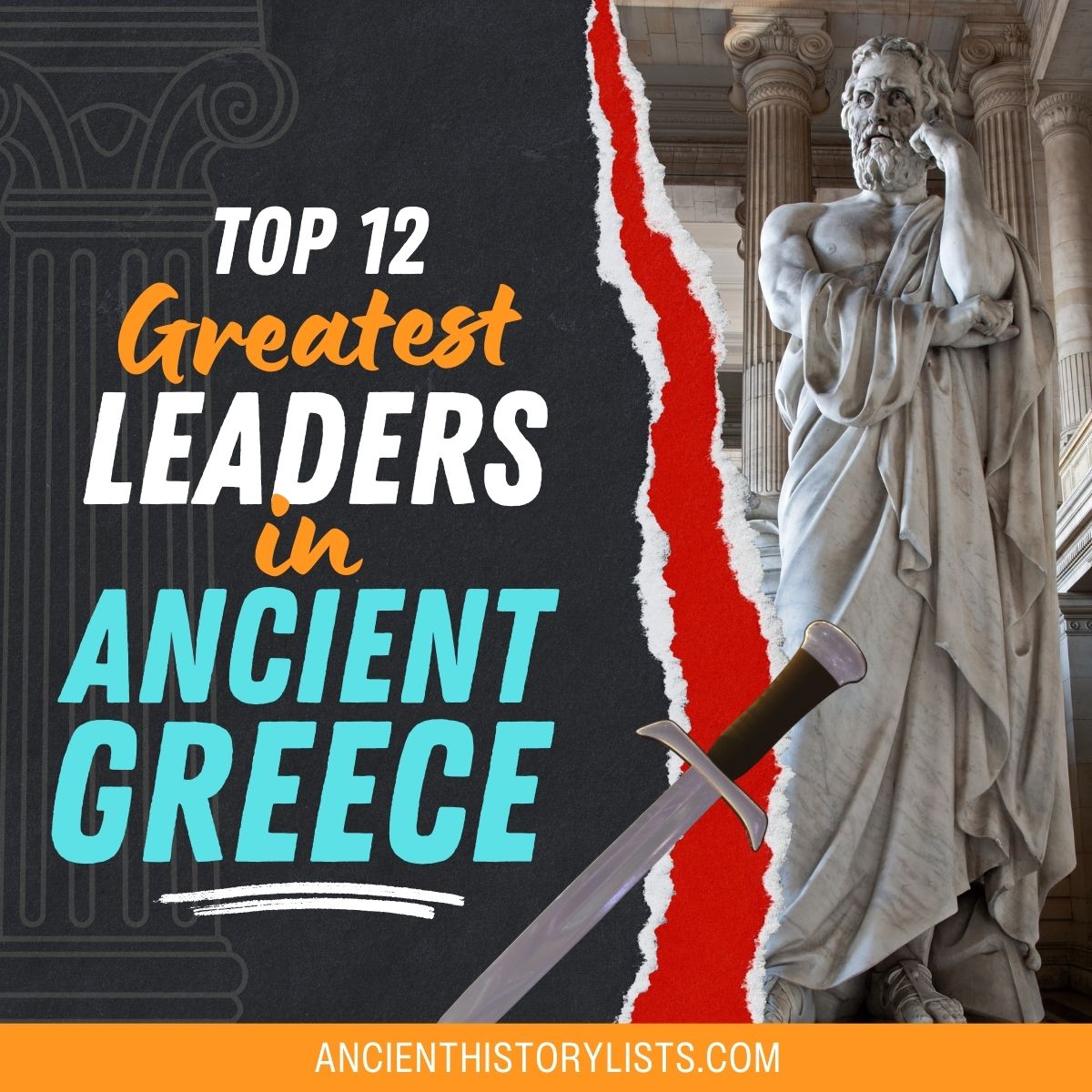
Ancient Greece has probably one of the richest cultural histories of all civilizations and saw many great personalities and leaders; those who worked hard to build the legacy that we know today.
Here, we will discuss some of the great leaders who ruled Greece during ancient times:
1. Alexander the Great (356 BC–323 BC)
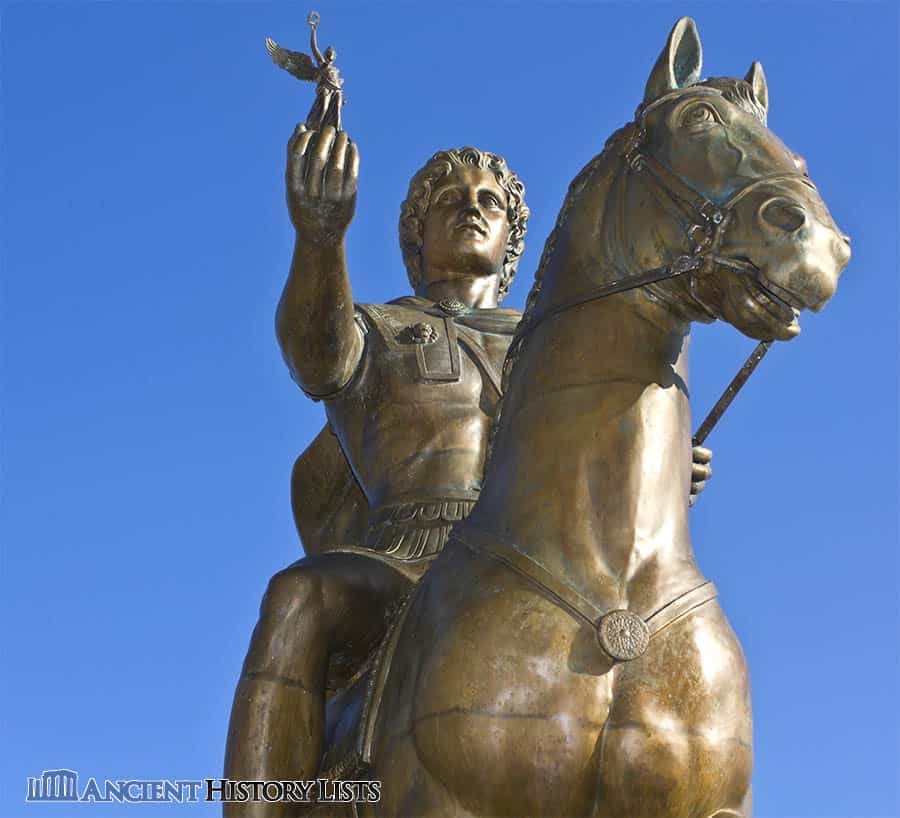
Alexander the Great is famous for being one of the greatest military generals the world has ever seen. He was the son of Philip II, the king of Macedonia. He grew up observing his father’s rule and saw Philip develop Macedonia into a great military power. It was said that he was extremely courageous from a very young age; brave enough to tame a wild and rowdy stallion at the tender age of 12.
Being a prince, Alexander was fortunate enough to receive his education from the renowned Greek philosopher, Aristotle. This philosopher planted the seed of curiosity, and from there Alexander’s love of knowledge grew. He was not only a great military genius but exceptional in the fields of science, literature, philosophy, and medicine.
Alexander’s father was assassinated when he was 20 years old and at that age, he ascended the throne, promising to follow in his father’s footsteps. Being the son of a great conqueror, Alexander continued the legacy left by his father by going on to conquer the Persian Empire. After many further successful military campaigns, he then went on to build the biggest empire that the world had ever seen.
Learn more about Alexander the Great.
2. Pericles (494 BC-429 BC)
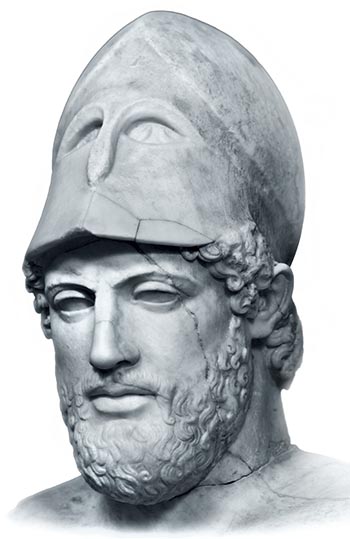
Pericles was a renowned Greek statesman. He was born in Athens and lived from 495 to 429 BC. He was also an orator, politician, patron of the arts, and a renowned Athenian general. According to historians, the time of Pericles is referred to as the Golden Age of Athens or the era of Pericles.
During Pericles’ rule, he encouraged the arts, philosophy, literature, and freedom of expression. Citizens were allowed to express themselves and indulge in any form of study. That is why during his time and under his influence, Athens became home to the world’s greatest artists, playwrights, scientists, poets, architects, sculptors, and philosophers. Renowned and celebrated playwrights like Euripides, Sophocles, Aeschylus, and Aristophanes lived in Athens, and they invented the modern-day theatre that we enjoy today.
Athens was also home to great philosophers like Zeno of Elea, Protagoras, and Anaxagoras. They were also Pericles’ closest friends. Art was hugely important at that time, and that is why sculptors like Myron and Phidias were in Athens creating great statues from marble and sandstone. Socrates, the “father of Western philosophy” also lived in Athens during this period.
The era of Pericles also witnessed the construction of the glorious Parthenon which Athens is famous for today. His death marked the end of the golden age for Athens as there was no one of such caliber to uphold his legacy.
3. Leonidas, King of Sparta (540 BC-480 BC)
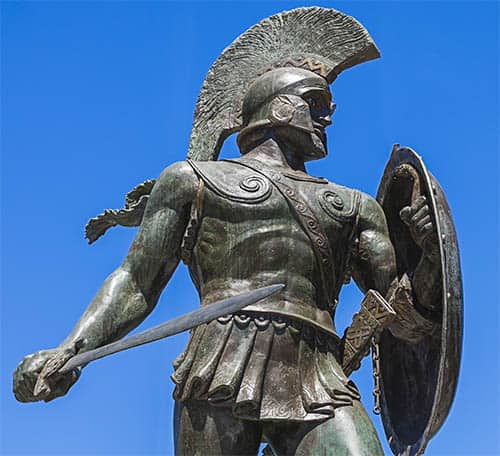
Historians do not have a lot of information about this courageous king of Sparta, but during the war between Sparta and the Persians, he was no doubt the most courageous king Greece has ever seen. Leonidas was said to have been born in 540 BC and died in 480 BC.
The courage that Leonidas showed during the Battle of Thermophile against the Persian king, Xerxes, in the summer of 480 BC is still celebrated. The king of Persia had already conquered northern Greece and was on his way to capture the south, but Leonidas bravely defended his position even though his army of just 4,000 soldiers was no match for the 80,000-strong Persian force. They fought to the death. A statue of Leonidas stands in his homeland of Sparta to honor his great courage.
4. Solon (630 BC-560 BC)

Solon was a poet, politician, and the founder of democratic government in Greece. He was born in 638 BC and died in 558 BC. Solon was a lawmaker who was the first to grant democratic rights to the common citizens of Athens.
His Athenian policies brought an end to bonded slavery and the mistreatment of the common people. During his time, not only nobleman but also common citizens were given the right to freedom of expression.
In 594 BC, he was democratically elected as “archon” or governor of ancient Athens. He made laws and laid the foundation not only for the cultural and military development of Athens, but also for its economic prosperity. Although his democratic reforms declined after his death, he planted the seed of democracy in the minds of Athenians.
5. Cleisthenes (570 BC-508 BC)
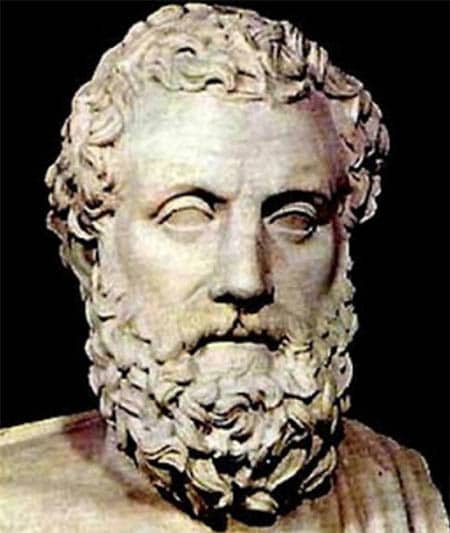
Cleisthenes was the true father of Athenian democracy. He was an ancient Greek lawmaker, credited to have redeveloped the constitution of ancient Athens to establish a democratic government in 508 BC.
He was also renowned for his achievements in increasing the political power of Athenian citizens while reducing the power of the noblemen. Being a member of the aristocratic class himself, he was powerful and, in 510 BC, the Spartans backed him, overthrew their king, and established a democratic government.
Cleisthenes achieved so much with the help of the middle classes and the democrats. Eventually, he went on to make further reforms and awarded all citizens equal rights and established “ostracism” which was a form of temporary banishment from the city by popular vote.
6. Demosthenes (384 BC-322 BC)
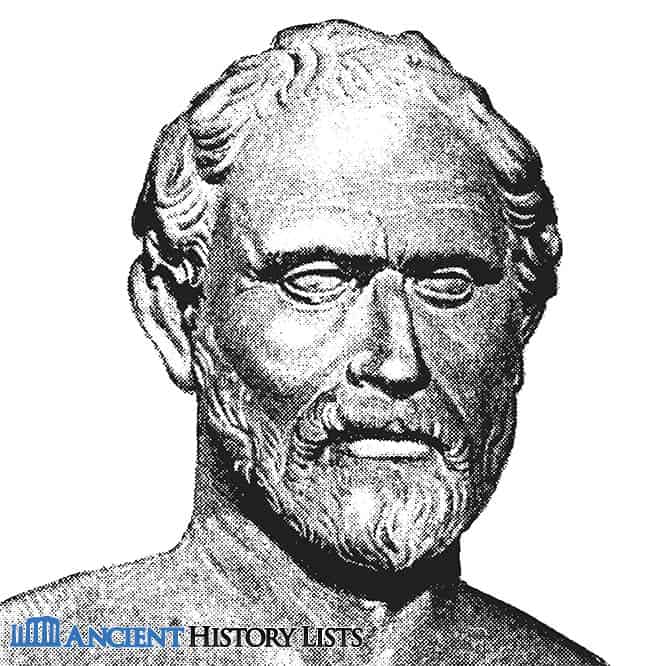
Demosthenes was a statesman, orator, and a significant political personality in ancient Greece. He was a celebrated orator, and during his life, he influenced a lot of people in order to oppose and overthrow the Macedonian rulers.
He was orphaned at a very young age and had to fight for his inheritance which was forcibly taken by his guardians. As a child, he suffered from a speech disorder, and he had to overcome this before he could become an orator. The first speech he gave was to condemn his guardians for taking his inheritance.
He later went into politics and was instrumental in preventing the Macedonians from conquering Athens until Alexander the Great ascended the throne. After that, Alexander pursued Demosthenes to prevent these kinds of uprisings during his reign. An assassin was sent after Demosthenes, but he took his own life before he was captured.
7. Draco (650 BC-600 BC)
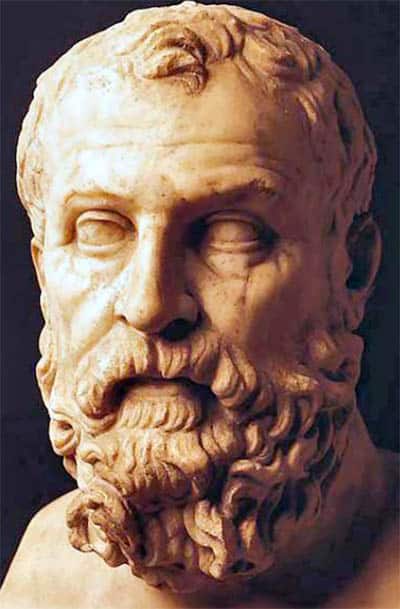
Draco was an extremely influential figure in late ancient Greece. He is still renowned all over the world for his legal codes and the harsh laws he established. Although historians do not have much information about his early life, written texts about his laws still survive.
Draco’s laws were corrupt and favored leniency towards the upper classes. His laws were widely publicized on wooden tablets and kept on public display so that everyone could read them. This was not common practice before Draco, as the laws were kept private amongst the aristocratic classes and the rulers.
His laws were much harsher on the underprivileged class, for example, he introduced the death penalty for stealing vegetables. If a lower-class citizen owed money to a higher-class citizen, then the nobleman or the merchant could force the common citizen into slavery until the debt was paid off.
His law regarding homicide still exists, but historians are not sure of the exact wording. According to this law, a killer had to go into exile and even receive the death penalty if agreed to by the family members of the victim.
Historians are still confused about the reason for his death.
8. Pisistratus (608 BC-527 BC)
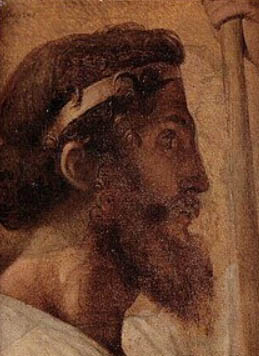
Pisistratus is known as the most lenient ruler of ancient Greece. He was the son of Hippocrates and ruled Athens from approximately 561 BC to 527 BC. Pisistratus is still known as the ruler who favored the Athenian lower classes and was exceptionally considerate towards them.
During his reign, the upper-class aristocrats and noblemen also had to answer to him, and he reduced a considerable number of their privileges and rights. Pisistratus also seized their lands and gave them to the underprivileged classes. Pisistratus established the Panathenaic games and tried to produce definitive versions of the epics written by Homer.
9. Cimon (510 BC-450 BC)
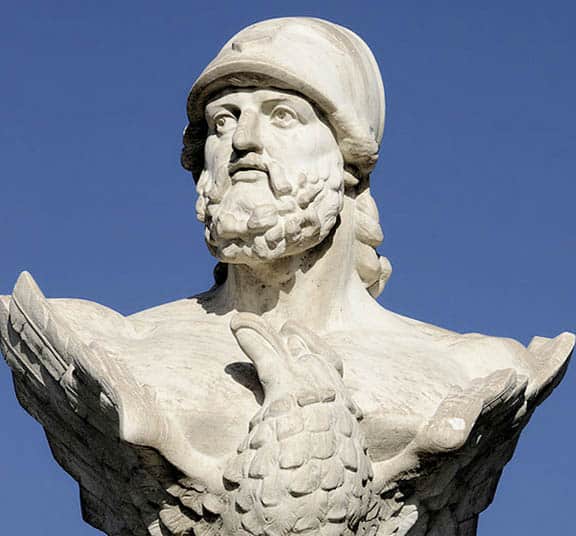
Cimon was an Athenian general and statement born in 449 BC. He was the son of Miltiades. He fought alongside Aristides and sent his fleet to rescue the Asian Greek cities from Persian invaders.
During his reign, he conquered Asia Minor and won against Persian sea and land forces in 486 BC. After the death of Aristide, he became the chief statesman of the aristocrat and pro-Spartan party after Themistocles. According to historians, he was sent into exile later in his life and was recalled in 451 BC to make a peace treaty with Sparta.
10. Cassander (350 BC-297 BC)
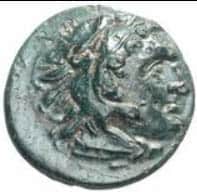
The history of Cassander’s rule is probably one of the bloodiest in ancient Greek history. He was an important protagonist during the Wars of the Diadochi and waged bloody war against the Macedonian general, Polyperchon. After winning the war, he took supreme power over Greece and Macedonia.
Cassander was involved in other blood feuds such as the one with Alexander’s mother, Olympia. During this war, she put Phillip III, Alexander’s half-brother, and many more to death. Later Cassander fought against her and won the battle in 316 BC. Cassander married Alexander’s half-sister to gain a strong claim to the throne and later murdered both Alexander’s widow and son.
11. Demetrius l (222 BC-180 BC)
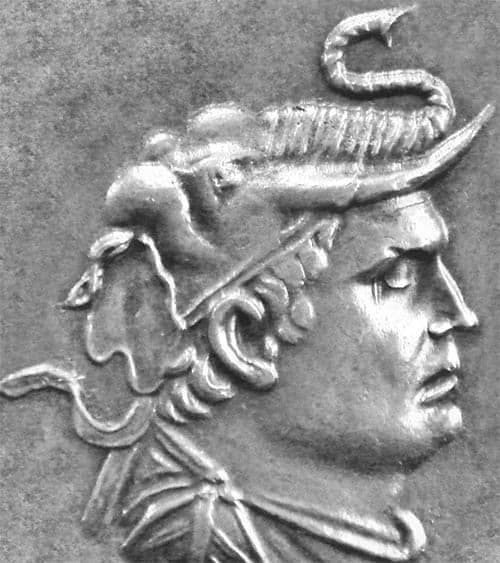
Demetrius l and Cassander had an intricate and interconnected history. Demetrius was a capable commander in his father Antigonus l’s army. He fought and defeated Cassander once, but Demetrius was defeated in Gaza in 312 BC.
Demetrius fought Cassander and drove him out of Athens but Cassander later allied with Seleucus l and Lysimachus, and defeated both Demetrius and Antigonus in the Battle of Ipus in 301 BC, during which Antigonus was killed.
After that, Demetrius reconciled with Seleucus and murdered his enemies and the sons of Cassander when he succeeded the throne of Athens in 294 BC.
12. Cleopatra (69 BC-30 BC)

According to historians, Cleopatra was not only beautiful, but she was also one of the most politically powerful and most ruthless rulers of both Greece and Egypt. Her reign followed on from Alexander the Great’s during the Hellenistic period of ancient Greece.
History says that Cleopatra succeeded the throne after the death of her husband. She married two of her siblings to keep the throne to herself and her son, and she supposedly murdered her other two siblings to prevent them from challenging her.
She was one of the most brilliant, shrewd, powerful, and talented leaders of ancient Greece. Being a woman in the male-dominated society of ancient Greece, she was only able to keep the throne through extreme tactics and clever rule.
Conclusion
While these are not the only influential leaders of ancient Greece, they had a significant impact on the history of this great nation. There are various other political and military leaders of Greece who also went on to influence Greek civilization as we know it today.
If we are talking leaders that carried their influence through Western Society up until today…then I would argue Lycurgus of Sparta is strikingly absent. There are two on the list I would say of equal import by way of preserving and expanding the reach of Greek culture, but in terms of ideas…Lycurgus of Sparta.
Plutarch’s Lives, vol. I – read the law that Lycurgus gave Sparta; next to it, read the U.S. Constitution. They are similar enough, one could probably make a strong argument of plagiarism.
It’s absurd to rank Leonidas I above the Spartan king Cleomenes I, let alone above the greatest Spartan general of all, Brasidas. Leonidas’ stand at Thermopylae was brave, but probably not even a good strategic decision.
Lycurgus’ accomplishments are mythical. The Spartan laws attributed to Lycurgus definitely did not yet exist in 600 BC, long after Lycurgus.